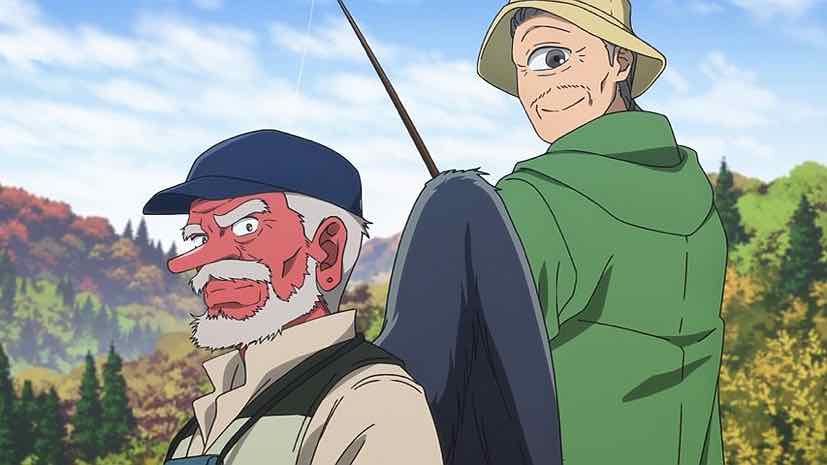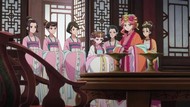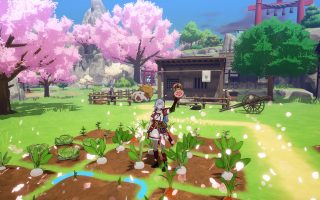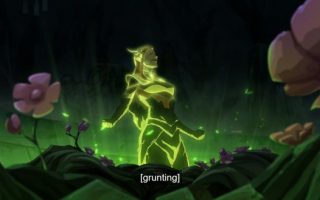I’m pretty close to the official opt-in with Tonari no Youkai-san. This show is genuinely interesting, because it’s more than a simple healing slice of life with Shinto overtones (which anime has had plenty of already). It’s about as comprehensive a folklore depiction as you can get, for starters, which is a plus if you love folklore as much as I do. Why do people seek bigfoot and search for UFOs? Because we want them to be real. We want the world we live in to be bigger than we can comprehend, to still have mysteries – because in the modern age so much has been explained.
HORATIO:
O day and night, but this is wondrous strange.
HAMLET:
And therefore as a stranger give it welcome.
There are more things in heaven and earth, Horatio,
Than are dreamt of in your philosophy.
I think the importance of mystery to the health of the human psyche is vastly underrated. And one of the things I appreciate about Tonari no Youkai-san is not just how comprehensive its mythology is, but that it feels no compulsion to explain it. The matter of fact way in which Fuchigamori accepts its (to us) bizarre reality is part of the spell the series weaves. We did find out at least that the place is not some isolated island of youkai-human interaction – Japan as a whole accepts this, as witness the importance of Sanmoto (Mikami Satoshi, an underrated seiyuu who’s really great here), a Tokyo-based maou-turned celebrity spokesman for the youkai community in Japan.
We’ve had references to Kami already but this is the first time one actually appears. First a Bunmei, splintered off from the local Dragon Goddess, appears before Tazenbou and his fishing buddies (including a cyclops), and later the dragon Herself. As for Sanmoto, after Jirou tells him about Buchio’s struggle to find meaning in his transformation into a nekomata he invites Buchio to Tokyo. There his nekomata assistant Sakai-san (Kawasumi Ayako) makes introductions and eventually Sanmoto offers Buchio a job. He wants to start working, but to help his family – and he can’t do that by moving away.
In the end this is the meaning Buchio is searching for. Though it was already pretty obvious to us, he transformed out of a sense of gratitude to his human family (especially Mom) that a mere twenty years wasn’t long enough to satisfy. Now he has the opposite problem, since the lives of humans are a blink in the span of a youkai. But, like the car tsukumogami he meets later at driving school (ROFL), Buchio can pledge to stay with his humans for the rest of their days. The whole driving school thing is pretty hilarious, with “Wagen” (wagon) revealing that because he was a German car he had to become a Japanese citizen before he could a license. You know, because he’s now a self-driving car.
After a scary incident with a Raiju (Storm God) falling from a rift in the sky at school (Chekov’s rift), the Dragon Goddess appears before the tengu (and Buchio). She explains her appearance to Buchio by telling him she wants to make the humans she interacts with comfortable by appearing as an idol. She then warns him that while Sanmoto is okay for the moment, Buchio should never let his guard down around a Demon King. Trusting Buchio wants to think the best of everyone, and calls Sakai to share his concerns. “Everyone has two faces”, she tells him, “and that’s not a bad thing at all”.
There’s real wisdom in that. And one gets the sense that there’s a wisdom behind Tonari no Youkai-san’s perspective on life. It’s fantasy, but like all good fantasy it uses the tools at its disposal to observe reality in a way “realistic” fiction can’t. On the whole I think this show is pretty smart and has interesting things to say, and that’s a rock-solid basis around which to build a story.
The post Tonari no Youkai-san – 04 appeared first on Lost in Anime.




